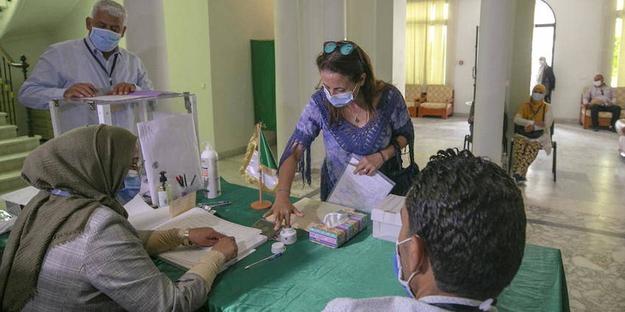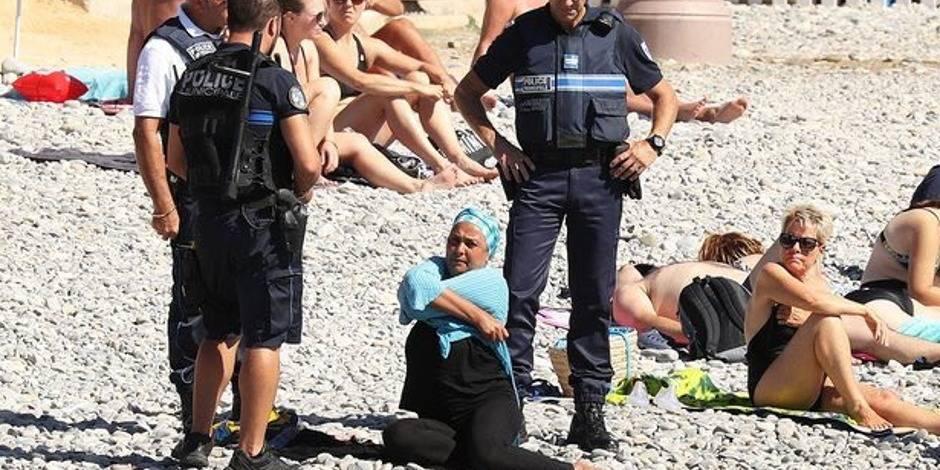Arab countries and democracy: an impossible equation?
The failure of the Tunisian experience, the only Arab democratic country, sounds the death knell for the parenthesis of the Arab Spring and gives the unpleasant feeling of an incompatibility between democracy and Arab societies.It is true that these countries go through a delicate period in which despair, doubt and questioned.You must not be a big clerk to see that their development model is obsolete and that the advent of democracy remains a wish.We often forget that democracy is a historical result that is not seen HIC and NUNC, but requires maturation, civilizational references and a cultural base.Certainly comparison is not right;Each country has its Caput Mundi, its specificities, its Rector and Director culture, but we can draw some specific cultural features for Arab countries.
The economy suffocates and the Chancelle nation
Arab political systems have been able to create, not without difficulties, a cultural homogeneity, to lead to a political balance and a certain social harmony.But one can wonder about their ability to establish a real rule of law, to legitimize policies which are most often due to a few, passing for the expression of all.The obligations are acceptable as soon as they are the translation of a categorical imperative of equity (Confucius) applying to all and not hypothetical, because they are subject to other actions.
Consequently and as soon as these approaches are exceeded by preterition (political balanced, social harmony, etc.), it is clear that the nation itself is in lounge to increasingly prevalent demands (social justice, individualism, separatism…).It must be said that the politico-economic elite in Arab countries has not been able to play the role that is, redistributing the riches accumulated since independence.The balance was, so to speak, broken.The stability of the politico-economic system seems as untenable as a january Dry who would start his eyes fixed on a bottle of Jurançon.The nation therefore seems as a flickering, hayful, sometimes uncertain entity;In any case, never completed.She keeps rehashing her past glory, based on a magnified, exalted, maintained history, which rarely corresponds to reality.
Beyond that, these countries are faced today with an increasingly difficult economic reality, where growth is absent subscribers.At least, vigorous, inclusive and sustainable growth that can respond to the demands of an increasingly precarious population.If unemployment is generally high, it is downright explosive among young people (three times higher than in adults in the Maghreb countries).And what about the activity rate of women, which is among the weakest in the world!The crisis engendered by the covid pandemic came to amplify these faras;It exposed the political-economic system of these countries and has shown the flaws of a fragile economy (very vulnerable to external shocks), rentière (multiplication of gains acquired outside the law of the market) and not very structured (theinformal sector is omnipresent).

Also read Nicolas Baverez - From Arab Spring to Islamist winter
Cultural bias
It is quite surprising that more than half a century after their independence, most Arab countries, however endowed with substantial natural resources and a young population, are experiencing such difficulties. Obviously, there is a rocky eel. We can rightly think of the role of national cultures in the organizational practices of countries (called "cultural bias"). Individuals are, in a way, formatted by cultural factors. This is the experience acquired within the family, at school and at work throughout life, and which is, by definition, different from one country to another. These achievements have a strong influence on the behavior, attitudes and the way of thinking of individuals and, ultimately, on the meaning or not of a strong power, a different culture and values of openness and tolerance and tolerance . The paroxysmal fidelity in traditions (Julien Gracq, the shore of the Syrtes) can generate obstructions, making society incapable of innovating, recreating or producing allegories, caught up as it is by the present moment, inertia and procrastination.
Moreover, the persistence of a strong power in the Arab countries, of rentier, opportunistic and non -cooperative behaviors, means that democratic values find it difficult to unravel.This is all the more amazing since there are a high demand for democracy in many Arab countries if the global survey on values (World Values Survey, WVS) is believed.If we add to that the lack of confidence between individuals and the fact that the relationship from Arabic to the other, and with himself, is inevitably woven with various and varied beliefs, the equation becomes if not inextricable, at least complicated.It is not the belief, as such, which is problematic, it is rather the modalities of its combination with the reason that is questionable.
To read also "France has stood out that Arab modernity came from Islamism"
The chief's worship
Unlike the Scandinavian countries where individuals opt for a weak hierarchy and a flattened organization, in the Arab countries, individuals prefer to have a chief endowed with strong power.This can, in part, explain the economic and political difficulties experienced by Tunisia, despite free and transparent elections.This country is precisely suffering from the weakness of central power.According to WVS, while expressing a high demand for democracy (especially in the Maghreb), most Arab countries accept hierarchy, are not very indulgent concerning the values of modernity and above all devoid of long -term vision.The latter is the most emblematic because not only is it associated with an accumulation of strong physical capital, and therefore with robust economic growth, but it above all makes it possible to plan structural policies (educational, innovation, etc.).
To read also Rachid Benzine: "I do not write to please everyone"
The role of belief
Admittedly, belief is anchored in Arab societies, is part of their identity, however, it can sometimes be a source of blockage and confinement. As it can constitute a invigorating myth which belongs to all; a mole of mooring that carries meaning; A rallying point that exalts generative and makes nation. The belief has always had as role the organization of the city and the institution of the social alliance. But this alchemy remains hypothetical and can only happen with a substantial increase in the level of human capital which remains if not desperately low, in most Arab countries, at least unsuitable for the requirements of the modern world. Consequently, knowledge, scientific research, cooperation, freedoms of thought, to undertake, to believe or not to believe, human rights, land equality between men and women, the disintegration of the Policy with the religious, the rejection of the criminalization of apostasy are the essential ingredients to avoid magic thought - fake news, conspiracy theory that flourish in a disturbing way in this region of the world, more than elsewhere - and are able, way to help find the best trails of the decision. Seneca said: "There are no favorable winds for those who don't know where they are going! »»
In summary, the lack of confidence, non-alerance towards modern norms and values (gender equality, equality between beings whatever their confessions, their affiliations ...), a weak human capital, the acceptance ofA strong power with weak institutions and the lack of long -term vision constitute serious obstacles which prevent having strong and lasting economic growth.Hence the difficulty of establishing a real democracy in these countries.
Also read Gilbert Achcar: "In the Arab world, hope remains allowed"
* Teacher-researcher at the University of Pau and the countries of the Adour.








